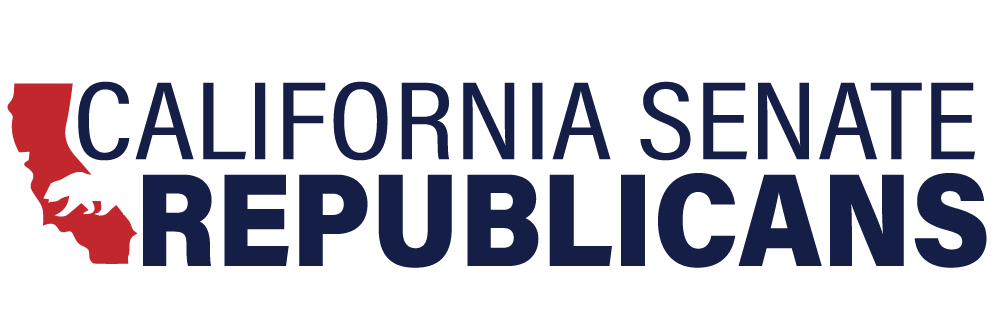Subcommittee #1 (Education) Laird (D-Santa Cruz) Chair, Ochoa Bogh (R-Yucaipa), and Pérez (D-Pasadena)
Ensuring Adequate Funding and Support for Special Education. The subcommittee discussed the Governor’s proposals for special education, including $182 million in Proposition 98 General Fund for a growth adjustment and cost-of-living increase. The need for special education has grown over the years, with data showing 15 percent of the nation’s K-12 students now receiving additional support. Senator Ochoa Bogh (R-Yucaipa) asked during the hearing if there has been any recent review of special education funding, and flagged that there are concerns from schools, parents, students, and those providing the services about “whether or not they actually have the funding to provide all of the services for our students.” The nonpartisan Legislative Analyst’s Office noted that schools are spending significantly more than they receive in combined state and federal targeted special education funding. Senator Ochoa Bogh noted that she would like to ensure we are providing the essential funding for our most vulnerable students to receive the services they need.
Subcommittee #2 (Resources, Environmental Protection, and Energy) Allen (D-Santa Monica) Chair, Choi (R-Irvine), Blakespear (D-Encinitas), and McNerney (D- Pleasanton)
Senator Choi Presses for Reform Amid Ongoing Infrastructure Delays. During the subcommittee hearing, Senator Steven Choi (R-Irvine) raised concerns over prolonged delays in critical state infrastructure, with a focus on water projects. He cited the 15-year delay of the Delta Conveyance Project as a failure to prioritize essential statewide needs. He highlighted the project’s estimated $1 million daily cost, largely driven by environmental litigation, and asked, “What’s the priority—human life or a fish in the Delta?” Choi criticized California’s worsening north-south water supply imbalance and lack of investment in long-term storage and conveyance. He also called for comprehensive reform to the California Environmental Quality Act (CEQA), arguing that regulatory abuse is a key driver of infrastructure stagnation and the state’s housing shortage. Choi urged colleagues to review outdated environmental regulations that obstruct shovel-ready projects. “These delays erode public trust,” Choi said. “We must reevaluate our priorities and restore efficiency in resource management and project delivery.” Choi’s remarks reflect growing bipartisan interest in modernizing CEQA to support California’s long-term infrastructure, housing, and climate resilience goals.
Subcommittee #3 (Health and Human Services) Weber Pierson (D-San Diego) Chair, Grove (R-Bakersfield), Menjivar (D-San Fernando Valley)
Senators Blast Costly Delayed IT Project as “Complete Disaster”. The subcommittee heard a request for $257 million in additional funding for the child welfare services case management IT system project, which was approved by the state over a decade ago in 2013. The project has since had six updates to its cost, schedule, and scope, and the current baseline cost of the project is $1.7 billion in state and federal tax dollars, an increase of $1.3 billion since the project’s inception. According to the state’s nonpartisan Legislative Analyst, the project “remains the costliest and longest running IT project still in the state’s current IT portfolio,” and there are “hundreds of millions of dollars in other project related costs not captured in the approved baseline.” In a bipartisan critique of the project’s mismanagement, senators called the project a “version of the high speed rail” and a “complete disaster”. Senator Shannon Grove (R-Bakersfield) said the delay was “absurd,” “unacceptable,” and that the children in this system “will be 40 years old when they finish this project.” Senator Grove added that the state needs to look through a “business lens” in order to complete projects like these on time. The subcommittee did not act on the request but will vote on the proposal in May.
Subcommittee #4 (State Administration and General Government) Cabaldon (D-Yolo) Chair, Niello (R-Fair Oaks), and Smallwood-Cuevas (D-Los Angeles)
Administration Misses Reporting Deadline for Middle Mile Broadband Initiative. The subcommittee discussed the state’s Middle Mile Broadband Initiative. A reporting deadline adopted in 2024-25 requires the California Department of Technology to develop a business plan that includes project revenue and expenditure data necessary to maintain the network. The Newsom administration has failed to provide that information, which was due January 31, 2025. Senator Roger Niello (R-Fair Oaks) stated that the failure to provide the report shows “a cavalier attitude or approach towards mandated reports, and that is troubling.” The Administration’s pattern of non-responsiveness reduces transparency and the Legislature’s ability to provide program oversight. Adequate revenue and expenditure data are critical to ensure the infrastructure will be operable without long-term pressures on taxpayers through the state’s General Fund.
Subcommittee #5 (Corrections, Public Safety, Judiciary, Labor, and Transportation) Richardson (D- San Pedro) Chair, Seyarto (R-Murrieta), Wahab (D-Hayward), and Durazo (D-Los Angeles)
Unemployment Debt Means Billions in Interest Costs for Taxpayers and Higher Taxes on Employers. The subcommittee discussed employment issues, including the astonishing $21 billion debt that California owes to the federal government for unemployment benefits. Most of this debt originated during the pandemic, but the amount has increased recently because California has the second-highest unemployment rate of any state. Also, while 48 other states chose to pay off their unemployment debts, California’s governor and legislative Democrats chose to leave the debt in place, despite having a $98 billion surplus in 2022-23, thus effectively raising taxes on job creators each year to pay down the principal. The interest cost falls on the state, though, and will reach at least $634 million in the upcoming budget year, growing in future years to potentially $1 billion or more, unless the state changes course. Senator Kelly Seyarto (R-Murrieta) criticized the state’s failure to pay off the debt when it had the chance and commented, “We need to find a way to pay down this debt without raising taxes on employers.”
